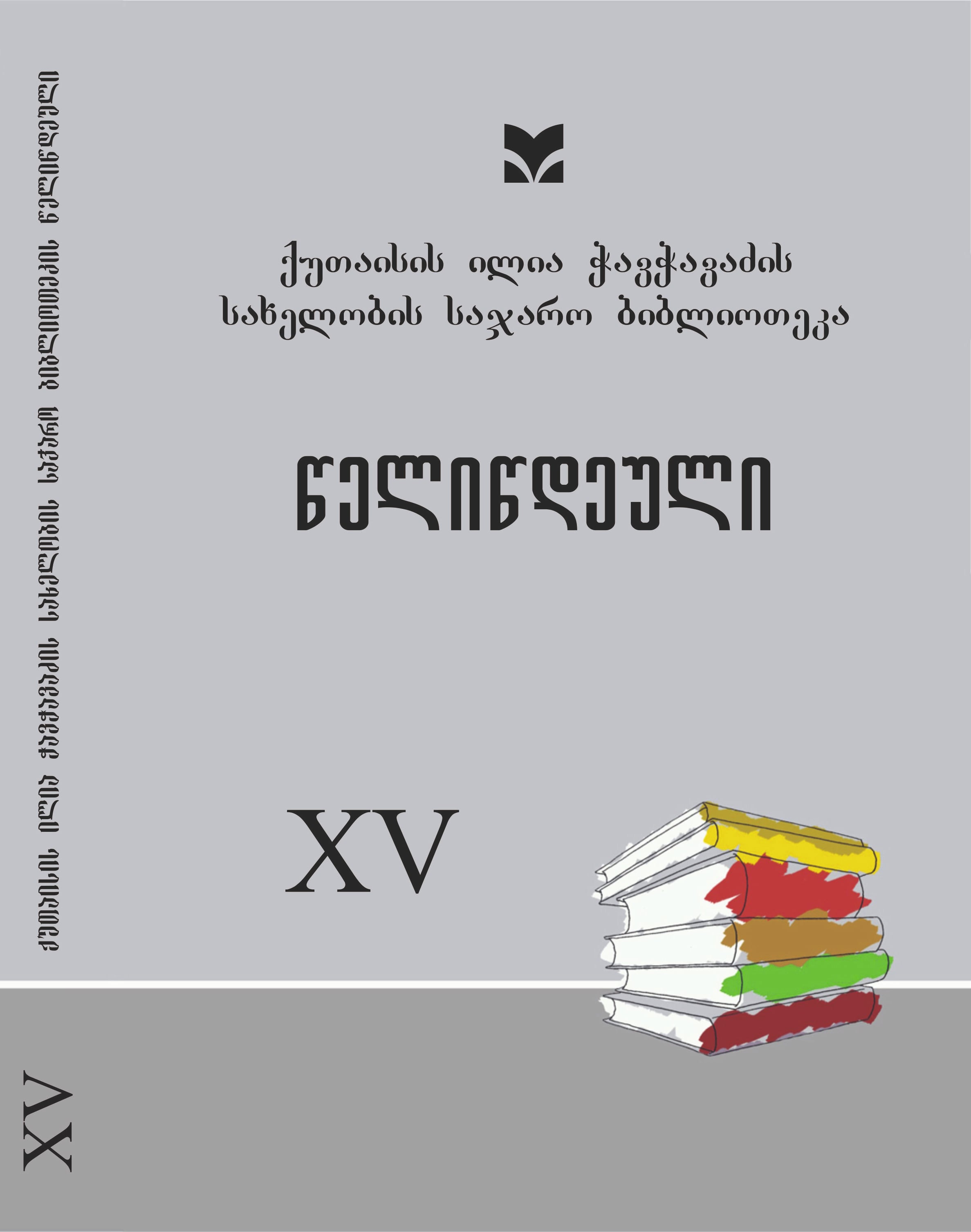Some aspects of the creativitySome creativity of Shalva Nutsubidze
DOI:
https://doi.org/10.61491/yk.15.2023.8028Keywords:
Georgian philosophical thought, work of Shalva NutsubidzeAbstract
Throughout history, the Georgian nation has consistently distinguished itself with a high level of cultural, historical, literary, and philosophical development. In this context, the contributions of the renowned 20th-century Georgian philosopher, Shalva Nutsubidze, stand out prominently. He played a pivotal role in the establishment of Georgian University, the conceptualization of the Georgian Renaissance, and signifificant advancements in Georgian philosophical thought.
It is noteworthy that there exists a notable connection between Kutaisi Tsereteli University and the Parskhanakanevi First School.
The novelty of this paper lies in its unique exploration of the relationship between Imereti and Shalva Nutsubidze. Given the conference’s theme on Imereti, particular attention is given to Nutsubidze’s relationship with this picturesque region of Georgia. Biographical insights underscore the scientist’s deep ties with Imereti.
One of the key contributions of Shalva Nutsubidze is his development of Georgian philosophical thought. Notably, he argued convincingly in his work „The Secret of Dionysius the Areopagite“ that the author of the Areopagian books was Petre Iberi from the 5th century, rather than the 1st-century scholar Dionysius the Areopagite. This insight greatly inflfluenced Shota Rustaveli’s worldview.
Another signifificant achievement in Nutsubidze’s career was his theory of the Oriental Renaissance, which had several precursors. Since the 1970s, this theory, along with its author, has gained widespread recognition. The theory posits that the Eastern Renaissance preceded and inflfluenced the Western Renaissance by several centuries.
Furthermore, while other Georgian scholars also referenced the Oriental Renaissance, the theory itself is primarily associated with Shalva Nutsubidze.
In conclusion, Shalva Nutsubidze’s reinterpretation of the Areopagus writings laid the groundwork for the concept of the Eastern Renaissance, asserting its precedence over the Western Renaissance.




